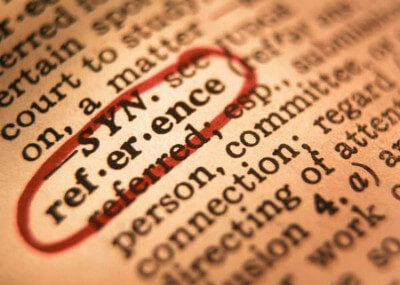Can a negative reference amount to disability discrimination?
January 7, 2016
Yes it can according to the Employment Appeal Tribunal’s decision of Pnaiser v NHS England and Coventry City Council. A negative verbal reference, which resulted in a job offer being withdrawn, was considered to be discrimination arising from disability.
Facts of the case
Ms Pnaiser was employed by Coventry City Council and was classed as disabled, within the meaning of the Equality Act 2010. As a result of her disability, Ms Pnaiser had significant absences from work. This did not affect her performance as she received consistently positive appraisals. Ms Pnaiser was made redundant and signed a settlement agreement which included an agreed reference.
Thereafter, Ms Pnaiser applied for a job with the NHS and was offered the position subject to satisfactory references. The Council emailed the NHS with the agreed reference and offered to discuss the matter further, if necessary; the recruiting manager subsequently telephoned Ms Pnaiser’s former line manager at the Council to obtain further clarification. The recruiting officer was told that Ms Pnaiser had significant time off work and indicated that she would not recommend her for the new job; implying that her previous sickness absence had affected her performance and she may not be suitable. In her evidence, Ms Pnaiser’s former line manager disputed what was said but did admit to having mentioned that Ms Pnaiser had a significant sickness absence for a condition lasting more than 12 months.
Following the verbal reference provided by the Council, the NHS withdrew the job offer. Ms Pnaiser brought a claim against the Council and the NHS alleging disability discrimination under Section 15 of the Equality Act 2010. The Employment Tribunal dismissed the claim, finding that Ms Pnaiser had failed to establish a case of discrimination. Ms Pnaiser appealed.
So, what did the Employment Appeal Tribunal (EAT) decide?
The EAT found that the Tribunal had been wrong in its approach and there was a case to answer. The unfavourable oral reference was given partly in consequence of the employee’s sickness absence which arose from disability; this was therefore a breach of Section 15 of the Equality Act.
The EAT said that when a disabled’s person’s job offer was withdrawn, following a negative verbal reference from a former employer, the tribunal should not have just focused on whether there were reasons why the manager providing the reference had formed a negative view of the former employer. The tribunal instead should have considered whether sickness absences, which were a consequence of the disability, played a part in the manager’s negative assessment. It was clear that this could have been the case here and a finding of unlawful discrimination was substituted and the case was remitted to the Tribunal to assess compensation for Ms Pnaiser.
What are the implications for employers?
This case highlights the dangers to both employers and prospective employers when pursuing and providing references. The former employer ought to have stuck to the agreed reference, which formed part of the settlement agreement.
It can be very difficult for employers to know where to draw the line when providing a reference and also how much information should or needs to be provided. Most difficulties arise when a verbal reference is provided. In this case, the manager volunteered information about Ms Pnasier’s sickness absence and her condition, something which could, as the Tribunal concluded, lead to a negative assumption as to Ms Pnaiser’s capability.
As an employer, you must ensure that you have a clear and consistent policy in place to deal with how references are given. If reference wording is agreed, you must ensure that your HR or relevant managerial staff are aware of the content so there is no deviation from what has been agreed.
Please do not hesitate to contact our friendly, reliable team on the details below if you are unsure of how to deal with reference requests or if you have any employment related questions. We would be happy to help.
This material does not give a full statement of the law. It is intended for guidance only and is not a substitute for professional advice. No responsibility for loss occasioned as a result of any person acting or refraining from acting can be accepted by Tayntons (LS) Limited. January 2016.


